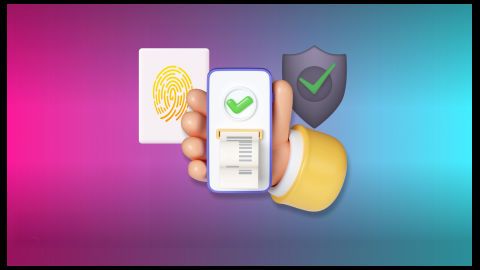The digital revolution has transformed how we manage finances and make payments. With the convenience of online transactions, consumers can now purchase goods and services from anywhere at any time. However, this convenience comes with the risk of online fraud, which has seen a sharp rise in recent years.
India is experiencing a surge in online fraud cases, with thousands of consumers being scammed annually. As financial institutions and banks implement advanced tools for secure digital transactions, fraudsters are becoming more sophisticated, using psychological tricks and AI-driven scams to deceive unsuspecting consumers. It’s more important than ever to stay vigilant and protect yourself from potential fraud.
How fraudsters operate?
Scammers have mastered the art of impersonation, particularly in the financial sector. Here are some common tactics they use:
1. Pressure to act immediately
Fraudsters often create a sense of urgency, using emotional triggers like fear or excitement to force quick decisions. They may send messages saying your debit card is blocked or dangle enticing offers like low-interest loans or holiday deals. The aim is to prevent you from thinking clearly and to trick you into sharing personal information or making payments.
2. Direct calls and fake loan offers
In one of the most common scams, fraudsters posing as Bajaj representatives call potential victims, offering incredible loan deals. They demand upfront payment for loan processing fees or file charges and provide fake approval letters before disappearing.
3. Social media scams
Scammers use platforms like Facebook and Instagram to run fake ads mimicking genuine Bajaj Finance promotions. They collect users' personal information, offer fake loans, and disappear after receiving upfront fees.
4. Mobile app scams
Some scammers convince consumers to download third-party apps to check loan eligibility, interest rates, or loan amounts. These apps often collect sensitive data, which fraudsters then exploit by posing as Bajaj representatives, demanding fees for fake loans.
AI Scams: The New Face of Digital Fraud
With the rise of Artificial Intelligence, scammers are finding new ways to exploit consumers. AI technology enables fraudsters to create convincing fake personas, clone voices, and even conduct realistic conversations with potential victims. Here’s how AI-driven frauds are emerging:
1. AI Phishing Attacks
AI tools can craft highly personalized phishing emails that seem to come from legitimate sources. These emails are designed to trick users into clicking malicious links or downloading harmful files.
2. Deepfake Voice Scams
AI voice-cloning technology allows fraudsters to mimic the voice of a bank representative or a known contact. Victims may receive a call that sounds like it’s from their bank, asking them to share sensitive details or make a payment.
3. AI-Generated Fraudulent Websites
AI can be used to generate websites that look almost identical to trusted institutions like Bajaj Finance. These fake websites often ask visitors to enter their personal details, which are then stolen.
Stay alert against AI scams
- Double-check URLs: Before entering personal information on a website, make sure the URL is correct and starts with "[https://]https://". Fraudulent websites often have minor changes in the URL.
- Verify calls and emails: If you receive a call or email that seems suspicious (Gmail or yahoo etc.), contact the company directly through official channels to verify the legitimacy.
- Don’t trust offers that seem too good to be true: AI-powered scams can create very believable offers or requests that are designed to mislead you. If something seems off, take the time to investigate.
Also, how to protect yourself from other frauds and scams
Being aware of the tricks fraudsters use is the first step in safeguarding yourself. Here are some essential tips to stay secure:
Never share sensitive information: Always keep your OTP, passwords, and other credentials private. Scammers often request this information to gain access to your accounts.
Avoid using public networks for
- Transactions: Public Wi-Fi networks in places like cafes and airports are often insecure. It's best to avoid performing financial transactions on these networks.
- Use strong, unique passwords: Protect your accounts with robust passwords containing a mix of letters, numbers, and symbols. Avoid reusing passwords across different sites or services.
- Verify loan offers: If you receive a loan offer via a call, email, or online ad, verify the authenticity by contacting Bajaj Finance directly through their official website or customer service.
Conclusion
As scammers evolve with technology, consumers need to be equally vigilant. From traditional tele-calling fraud to sophisticated AI-driven scams, protecting yourself from fraud requires awareness and caution. Always verify offers, avoid sharing personal information, and stay informed about the latest scam techniques.
Remember, if an online deal or offer seems too good to be true, it likely is. Stay safe, stay informed, and protect your hard-earned money.
Portal support made simple—explore below
How To Update Your Mobile Number And Email Id In Bajaj Finance Records |




